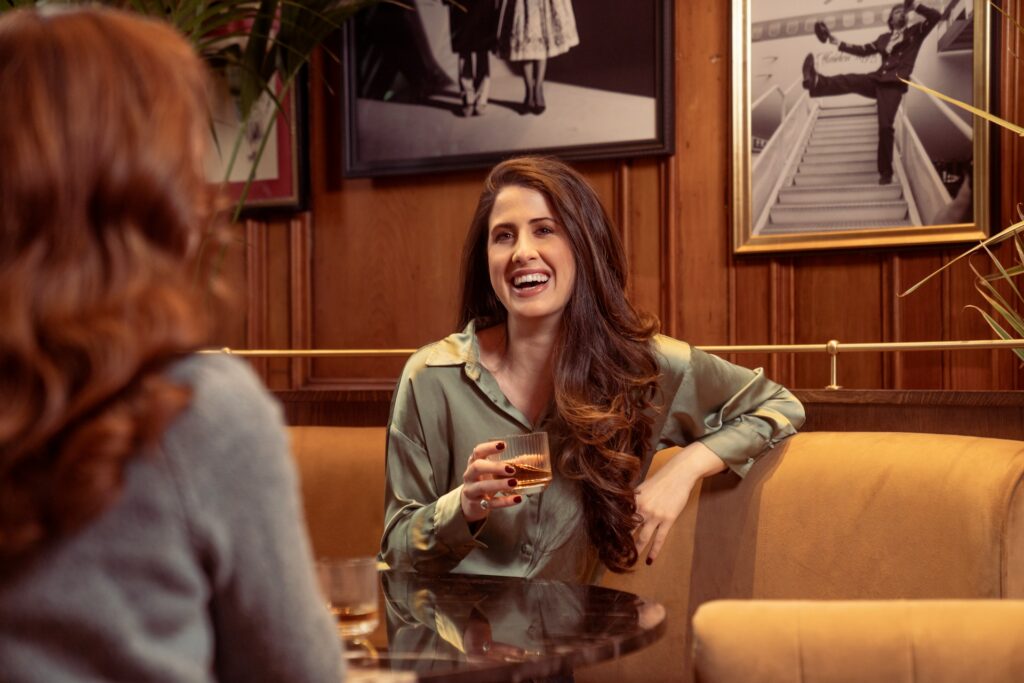If the word “no” makes you break out in a cold sweat, you’re not alone! But here’s the secret: saying “no” doesn’t make you selfish, as Forbes points out. Healthy boundaries are essential for your happiness and the longevity of your relationships. Let’s ditch those people-pleasing instincts and learn how to prioritize yourself without guilt.
1. Understand that “no” is a complete sentence.
 Source: Unsplash
Source: Unsplash
You don’t owe anyone a lengthy justification or excuse. A simple “I’m not available,” or “That doesn’t work for me” is perfectly acceptable. If they push for details, resist the urge to over-explain – sticking to a polite but firm repetition of your “no” shows you mean it. People might be surprised at first, but most will gradually adjust to your newfound assertiveness.
2. Remember, it’s not about them, it’s about you.
 Source: Unsplash
Source: Unsplash
You’re not rejecting the person, you’re simply saying no to a specific request. People who genuinely care about you will respect your limits, even if they’re initially disappointed. Those who react with guilt trips or try to manipulate you are revealing something about their character, not yours. Don’t take the bait – protecting your well-being is a sign of healthy self-respect, not selfishness.
3. Boundaries aren’t about saying no to everything, they’re about saying yes to what matters.
 Source: Unsplash
Source: Unsplash
When you don’t overcommit, you have the energy and focus to be fully present for the things (and people) that do get a “yes.” Think about what truly aligns with your values and goals, and make a conscious decision about what deserves your time and attention. Saying no to the less-important things gives you the freedom to embrace the things that truly matter.
4. Start with small boundaries to build your confidence.
 Source: Unsplash
Source: Unsplash
Instead of agreeing to a whole weekend trip, commit to dinner one night. Can you say yes to one task of a project instead of the entire thing? These small wins build your boundary-setting muscle over time, making the bigger “asks” easier to stand firm on. Start with the easy ones to gain confidence before tackling the tougher boundaries.
5. Don’t apologize for having boundaries.
 Source: Unsplash
Source: Unsplash
Phrases like “I’m so sorry, but…” undermine your message and feed the guilt monster. Instead, be clear and direct, then confidently change the subject. If they value your relationship, they’ll adjust – and if not, that information is valuable, too. Projecting confidence, even if you don’t fully feel it inside, makes your boundaries that much more effective.
6. Practice, practice, practice!
 Source: Unsplash
Source: Unsplash
Role-play tricky scenarios with a supportive friend or therapist, or even just practice out loud in the mirror! Figure out the wording that feels comfortable for you so when those moments hit in real life, the words will come more naturally. The more you practice saying “no,” the less weird it feels, and the more you’ll start to believe you deserve to have your needs met.
7. “Let me get back to you” is your best friend.
 Source: Unsplash
Source: Unsplash
This buys you time if you feel pressured for an immediate answer. Instead of caving in the moment, you get to thoughtfully decide if the request aligns with your priorities and availability. Then, you can confidently give a yes or a no. Taking the time to consider things helps you avoid impulsive answers you’ll later regret.
8. Expect some initial discomfort – it’s totally normal!
 Source: Unsplash
Source: Unsplash
Setting boundaries, especially if you’re not used to it, often feels awkward at first. Push through those uncomfortable feelings for the long-term benefit of prioritizing your well-being. Like a muscle, the more you use it, the stronger your ability to set and maintain your boundaries will become.
9. Give yourself credit for each boundary you set.
 Source: Unsplash
Source: Unsplash
Celebrate those wins, no matter how small! Maybe you turned down an extra work project or said no to a hangout because you desperately needed time alone. Recognizing your progress makes it easier to do again in the future, building a positive cycle of self-respect and empowerment.
10. You are allowed to change your mind.
 Source: Unsplash
Source: Unsplash
Flexibility is important! Just because you said yes in the past doesn’t mean you’re locked into it forever. If your circumstances, energy level, or priorities change, it’s okay to adjust your boundaries accordingly. While consistency is good, don’t feel trapped by a past decision if it’s no longer serving you. Just be prepared to communicate those changes clearly to manage expectations and avoid misunderstandings.
11. “I need to take care of myself first” is a powerful phrase.
 Source: Unsplash
Source: Unsplash
Self-care isn’t selfish – it’s necessary to function at your best! Explaining that you need time to recharge or manage your stress levels is often all it takes for reasonable people to understand. Healthy relationships will support your self-care efforts, and those that don’t might need to be reevaluated. Taking care of yourself is the foundation of being able to help others.
12. Offer alternatives if possible.
 Source: Unsplash
Source: Unsplash
“I can’t volunteer for the entire event, but I’m happy to help set up” or “I can’t come tonight, but I’m free for coffee on Saturday” shows you’re willing to be flexible without sacrificing your limits. It also lets them know you value the relationship, even if you can’t give 100% in that moment. Finding a middle ground demonstrates your willingness to compromise, which most people will appreciate.
13. Focus on how boundaries BENEFIT your relationships.
 Source: Unsplash
Source: Unsplash
Setting boundaries prevents burnout and resentment, making you a happier, healthier, and more present friend, partner, or family member. Prioritizing your needs gives you the capacity to show up more fully for the people who truly matter. Remember, you can’t pour from an empty cup – healthy boundaries protect your energy so you have more to give to those you love.





